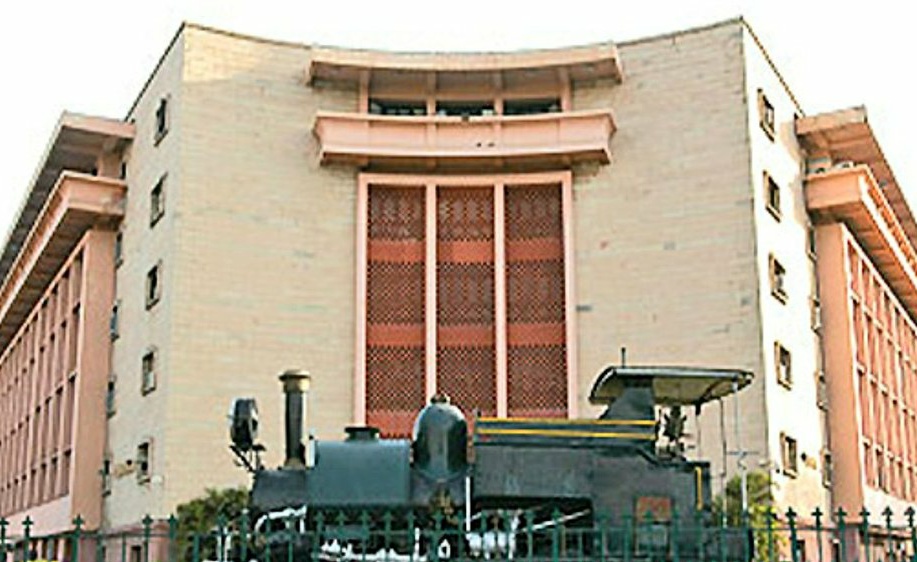Most of the Committees on Railways focused only on financial, not competitiveness
IR is not the first Railway to face the problem of declining competitiveness, this also happened in Europe and many other countries
Many committees from Rakesh Mohan to Bibek Debroy have examined the working of Indian Railways (IR) in last 20 years, but their focus was mostly on improving financials. Some looked into safety. But, none touched upon how competitiveness of IR was being eroded by failure to raise speed of trains unless we look at IR in comparison to other modern railways of the world, we will miss the point that the key to improving performance of railways vis a vis road and air is to raise speed to 200 kmph and above, writes Alok Kumar Verma, former chief engineer, NRly.
Indian Railways is not the first Railway to face the problem of declining competitiveness. This happened in Europe, North America and Japan and many other countries in the 1950s-60s.
There are two main reasons:
First, influence of powerful lobbies of oil companies, manucturers of automobile and airplanes.
Second, work culture: Speed above 160 kmph on rails requires very high precision and quality in maintenance of Track, Rolling Stock and Signalling.
Track is spread over thousands of kilometres. Rolling stock is maintained in sheds and workshops located at several places not just a few as in case of the modern airplanes.
To improve work culture, emphasis should be on merit and excellence. Discipline should improve. Political interference must reduce. Long term planning should be given importance.
Simply put, Indian Railway can not reach the higher stage of performance for high speed unless we improve the organization.
Formation of IRMS and other such half-hearted measures will not solve this giant problem.
@RailMinIndia cancelled indents for all services on #UPSC
— kanafoosi.com (@kanafoosi) March 7, 2020
But there are no signs of creation of #IRMS
Leave aside the indent for it..
There will be a gap of 2yrs in #Group_A recruitment
Will the posts b filled by promoting #Group_B causing more litigation?@PMOIndia@DoPTGoI
Government should give greater autonomy to Indian Railways to bring about the changes. Structural changes are also needed.
Verma said, “In my view, IR should be broken into four to six independent organisations. This will make the system more manageable. There will be competitiveness among the independent organisations which will keep the system on its toes and constantly improving”. anybody here has some ideas please post your views here, asked Verma.
Among the lobbies are the oil companies, who are tenacious. These companies want to sell all the oil that still remains inside the earth in the next 10 to 20 years before the movement against Climate Change gains sufficient momentum to change in energy use and carbon emissions.
They are digging deeper into the earth and extracting oil from tar sands. They benefit with a world reliant on road and air transport. They see railways as a spoiler in the game.
A Twitter user Mahesh S. Rathi comments on Verma, “True, Indian Railways have not been able to increase speed of trains by even 10km/hr in last 50 years. Rajdhani our max speed only train does 130 kms/hr and it was started in 1969. Average on most trains is 70km/ hr. From 70km, they do not think of doing 160km but 350km”.
Verma replies on Rathi, I’ve just posted the higher speed of trains outside India 85 years ago.
Rathi reacted on above, 85 years ago speed of conventional trains was 200km/hr. Ours till today 100km average. What have we done in successive governments of left, right, congress, UPA1, UPA2, Khichdi, Minority govts of Gujral, Devegowda and Chandrashekhar, NDA1, NDA2, Bajpai, Indira, Rajeev, Manmohan & Modi!
“It was really depressing for real, painful reading how far behind we are, don’t know :)”, said Narayan Kannan, a Twitter user.
Another Twitter user Ajit Kumar comments, “Commissioner of railway safety, RDSO, Railway Board are running behind 70 years”.
Many committees from Rakesh Mohan to Debroy committee have examined working of IR in last 20 yrs, but their focus was mostly on improving financials. Some looked into safety. But, none touched upon how competitiness of IR was being eroded by failure to raise speed of trains… https://t.co/TP9hmpgUkx
— Alok Kumar Verma, IRSE (Retd.) (@trains_are_best) March 7, 2020
#railway #IndianRailways #railwayboard #railtechnology #railwayengineering #iit #pubic_administration #public_policy #NotoIRMS #No_to_bullet_trains, #Sustainable_Transport #ClimateCrisis


